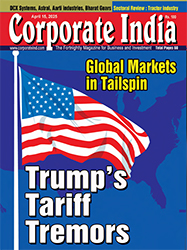Want to Subscribe?
Read Corporate India and add to your Business Intelligence

![]() Unlock Unlimited Access
Unlock Unlimited Access

Finance
Published: June 24, 2023
Updated: June 24, 2023
When it comes to investing in mutual funds, choosing between growth and dividend options can be a crucial decision for investors. The optimal choice depends on various factors, including taxable income and tax regime. In this article, we explore the advantages of each option to help investors make an informed decision.
If your taxable income falls below Rs. 5 lakh (under the old tax regime) or Rs. 7 lakh (under the new tax regime), opting for the dividend option can be advantageous. Dividends received from mutual funds are fully taxable, but with the rebate available under Section 87A, effectively making dividends tax-free in your hands.
For investors with taxable income exceeding the aforementioned thresholds, the growth option may be more suitable. Under the growth option, short-term capital gains from equity schemes are taxed at a flat rate of 15%. Long-term capital gains from equity schemes are taxed at a flat rate of 10% beyond the initial exemption of Rs. 1 lakh. In the case of debt schemes, short-term gains are taxed similarly to dividend income. However, long-term capital gains benefit from indexation and are subject to a flat rate of 20% after adjusting for inflation.
Given the complexities of tax regulations and the individual nature of tax liabilities, it is
prudent to consult with a tax advisor before making a decision. A tax advisor can assess
your specific circumstances and provide personalised guidance based on your income
composition and applicable tax slabs.
Deciding between growth and dividend options in mutual funds requires careful
consideration. If your taxable income is below the specified thresholds, the dividend option
may offer tax efficiency. On the other hand, if your taxable income exceeds the thresholds,
the growth option can provide a more favourable tax treatment for both short-term and long-
term capital gains. Seek expert advice to ensure your investment aligns with your financial
goals and tax situation.
Remember, each investor's circumstances are unique, and the right choice will depend on
your specific tax situation and financial objectives.

April 15, 2025 - First Issue

Industry Review

Want to Subscribe?
Read Corporate India and add to your Business Intelligence

![]() Unlock Unlimited Access
Unlock Unlimited Access
Lighter Vein

Popular Stories
Archives
